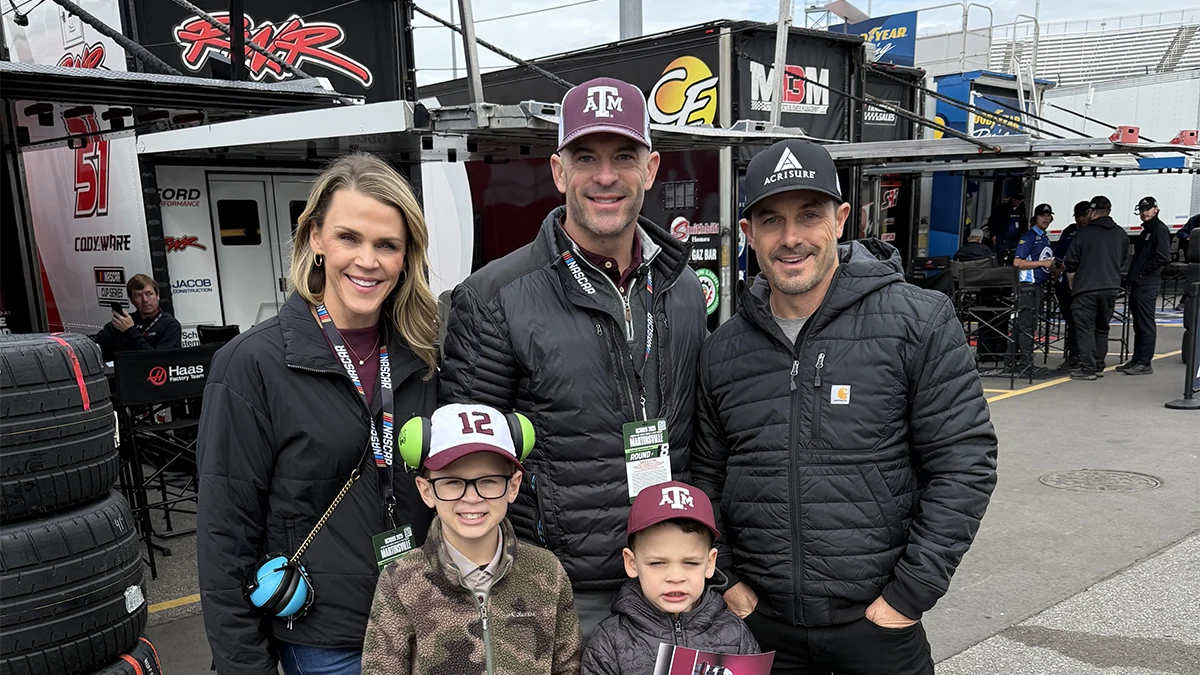Growing up in Boerne, Texas, Matt Williams ’25 learned about the importance of hard work and service to others from his dad, a proud Aggie and one of the most influential people in his life.
“My dad had a unique way of teaching us about hard work, discipline and service,” Williams said. “Part of it was 4-H. Another part of that was just that he taught us the value of hard work at an early age.”
Those values have guided and steadied him through his long, distinguished career in the U.S. Army, where he joined the Special Forces and served several tours in Afghanistan. In 2019, Williams was awarded the Medal of Honor for his actions during a daring mission on April 6, 2008, in Afghanistan.
Williams is one of nine Aggies who have received the Medal of Honor for their valor in action. And although his own path to becoming an Aggie took a bit longer than he had intended, he has led a life that exemplifies Aggie Core Values: Excellence, Integrity, Leadership, Loyalty, Respect and Selfless Service.
Called to serve
“My dad was an Aggie Class of ‘77, so we grew up in an Aggie household,” Williams said. “We were A&M fans, and we went to College Station several times to visit and see games as a kid and stuff like that. I was really drawn to the idea of Texas A&M.”
“I did not realize how hard I was supposed to try in high school, so I had to delay my career as an Aggie,” Williams recalls.“I always wanted to be a cop or a firefighter. I had the kind of drive to do something in service — serving your community is something that I think everybody should strive to do. So that’s where I was headed.” After graduating from high school, Williams attended Angelo State University, where he majored in criminal justice with ambitions of joining the FBI.
His career plans would change again for a completely different reason: the Sept. 11, 2001, terrorist attacks. Williams, like many other Americans at the time, was moved into action following those devastating attacks. “I really felt like I needed to do my part and had an opportunity to go serve in a greater capacity than I had intended via law enforcement. I started digging into the military a little bit more and looking at what options were available.”
Williams found what he was looking for in the U.S. Army Green Berets. “I was really drawn to the mission. Our motto is ‘De Oppresso Liber,’ which means to free the oppressed. And our job, our primary role and responsibility, is not just combat operations. It’s going into a host nation or a foreign country, and training, advising, assisting and working with resistance forces. In the case of Afghanistan, it was more of a government-backed force, but giving them the tools, the ability to take care of themselves.”
Serving beyond the call of duty
Williams joined the Army in 2005 and was deployed to Afghanistan multiple times in support of Operation Enduring Freedom and Operation Juniper Shield. During his service, he proved himself to be a valuable leader and soldier.
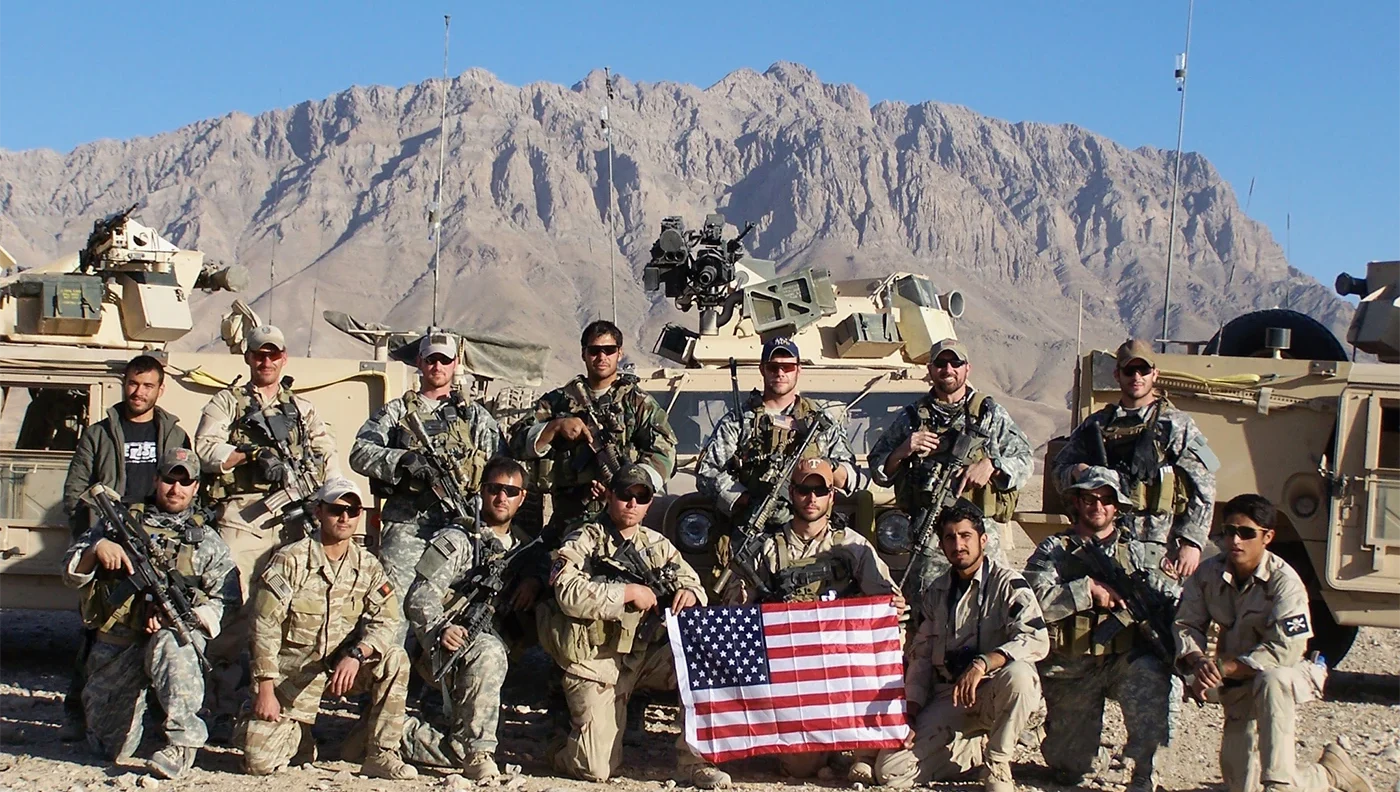
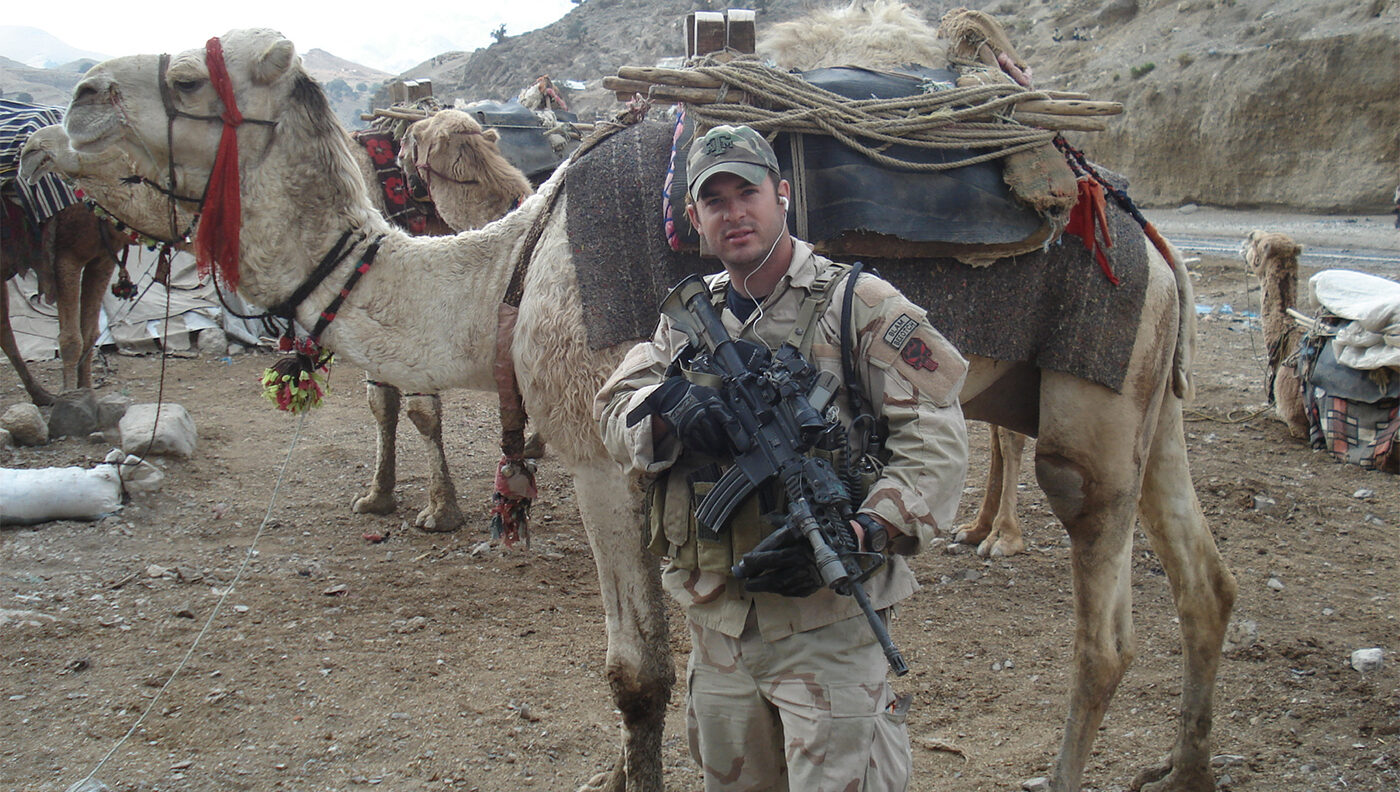
Photos courtesy of Matt Williams.
On April 6, 2008, Williams was serving as a weapons sergeant with Operational Detachment Alpha 3336, Special Operations Task Force 11, Combined Joint Special Operations Task Force-Afghanistan. Williams and his team were on a mission in Shok Valley in Afghanistan’s Nuristan Province.
When his unit came under intense enemy fire during a mountain assault and several soldiers were wounded and pinned down, Williams braved relentless machine gun, sniper and RPG fire to lead a counterattack across treacherous, ice-covered terrain and a freezing river.
He reached the trapped soldiers, organized suppressive fire and repeatedly exposed himself to danger to treat and evacuate the wounded down a sheer mountainside. Williams then climbed back up to continue the fight, reestablished communications and led Afghan commandos in a multi-hour counterattack that prevented the force from being overrun. During the evacuation, he personally carried casualties under fire to waiting helicopters, ensuring all wounded and fallen were recovered.
For his actions that day, Williams was initially awarded the Silver Star. Upon later review, the recognition was upgraded to the Medal of Honor, the nation’s highest military recognition for valor in combat. He was officially presented with the Medal on Oct. 30, 2019, by the President of the United States at a ceremony at the White House.
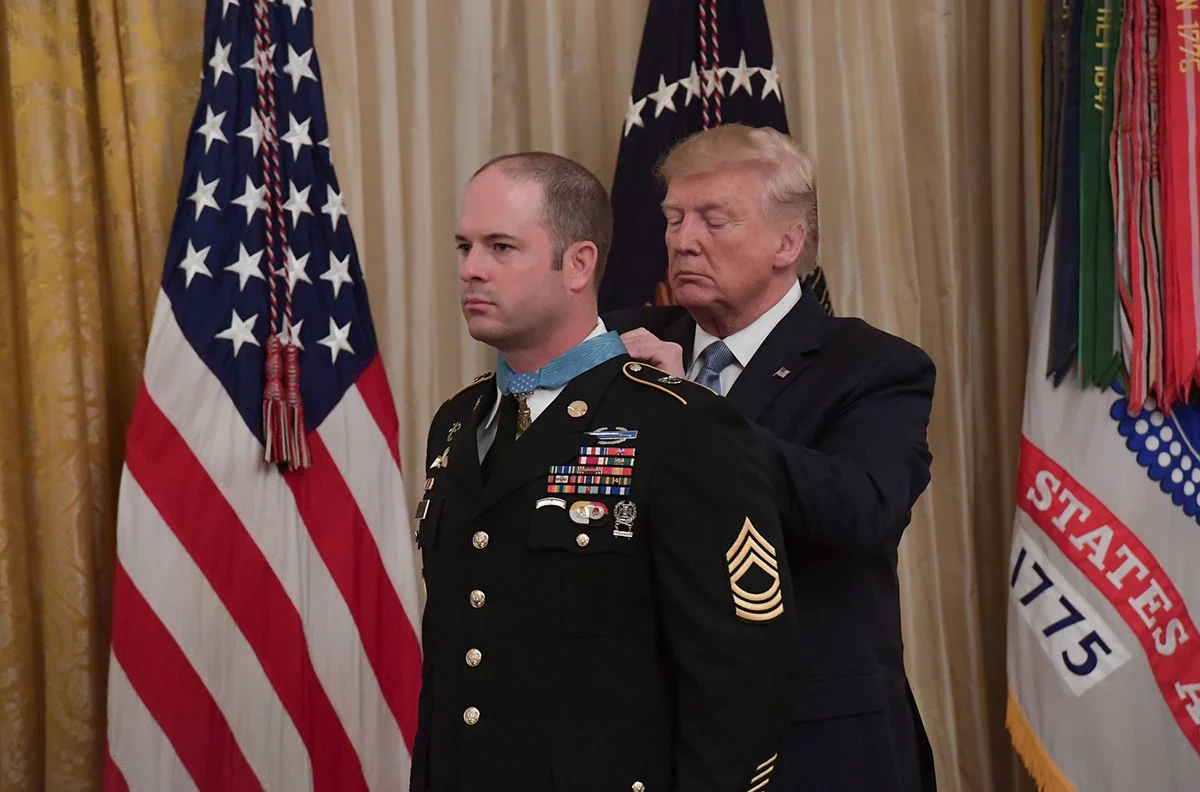
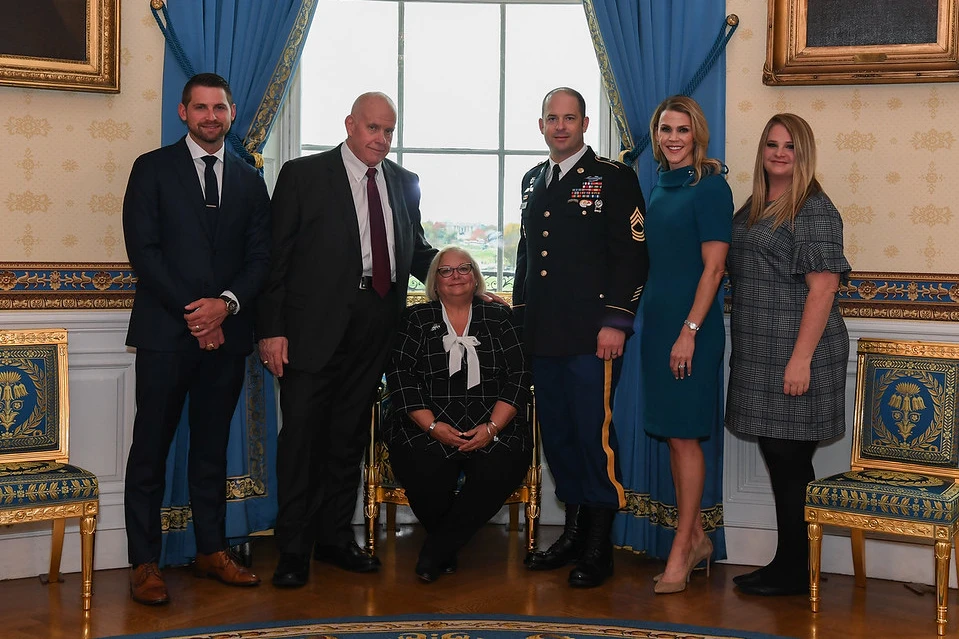
Photos courtesy of Matt Williams.
The weight of a medal
To Williams, the Medal of Honor isn’t just a piece of metal. It represents a moment of time when soldiers faced situations where split-second decisions could mean either life or death.
“The medal itself is the heaviest two or three-ounce piece of metal that you could possibly wear. Specifically, because most people don’t ever get the opportunity to wear it. I think the statistics are roughly that over 50% of medals are actually awarded posthumously. It’s a very distinct honor to get to wear it. But now, it becomes our mission, our purpose, to educate and inspire — specifically the youth, but also other Americans — about what service really is and what it’s about. It’s more than a tiny metal and a blue ribbon. We [the Congressional Medal of Honor Society] have assigned it values that I think are very important, and we help to perpetuate those values, which are courage, sacrifice, patriotism, citizenship, integrity and commitment,” Williams said.
“Those things highlight that an individual, at the worst times in their life, was willing to stand up for something bigger than themselves and do something greater than themselves. And then they got recognized for it. So there are 61 living Medal of Honor recipients today, and we have the distinct privilege and opportunity of representing the 3,520-some odd people that have come before us, many of whom never even knew that they were recognized in that manner.”
After honorably serving his country for two decades, Williams decided it was time to start the next chapter of his life and began looking to retire from the military. But before doing so, he had one more goal to achieve: getting a degree from Texas A&M.
Becoming an Aggie at long last
Williams officially joined the Aggie Family when he enrolled in the Executive MBA program at Mays Business School.
“I always wanted to be an Aggie, and I feel like that’s something that I let go of when I was a kid. I just didn’t make the right choices. I didn’t put myself in a position to be successful,” Williams said. “I realized that later in life and wanted to correct it. Just thinking back to experiences and the way that my dad spoke about A&M and how it kind of molded him and his character. I really wanted to be in that position to call myself an Aggie.”
“It was the perfect opportunity for me to fulfill a lifelong dream of becoming an Aggie and really make that connection again with my father. It took me a really long time to realize how much that was a part of his life, how much it meant to him. I felt like it was something I hadn’t accomplished, that I had kind of left undone, and so I needed to correct that. A&M welcomed me with open arms, and I was able to complete the program pretty well.”
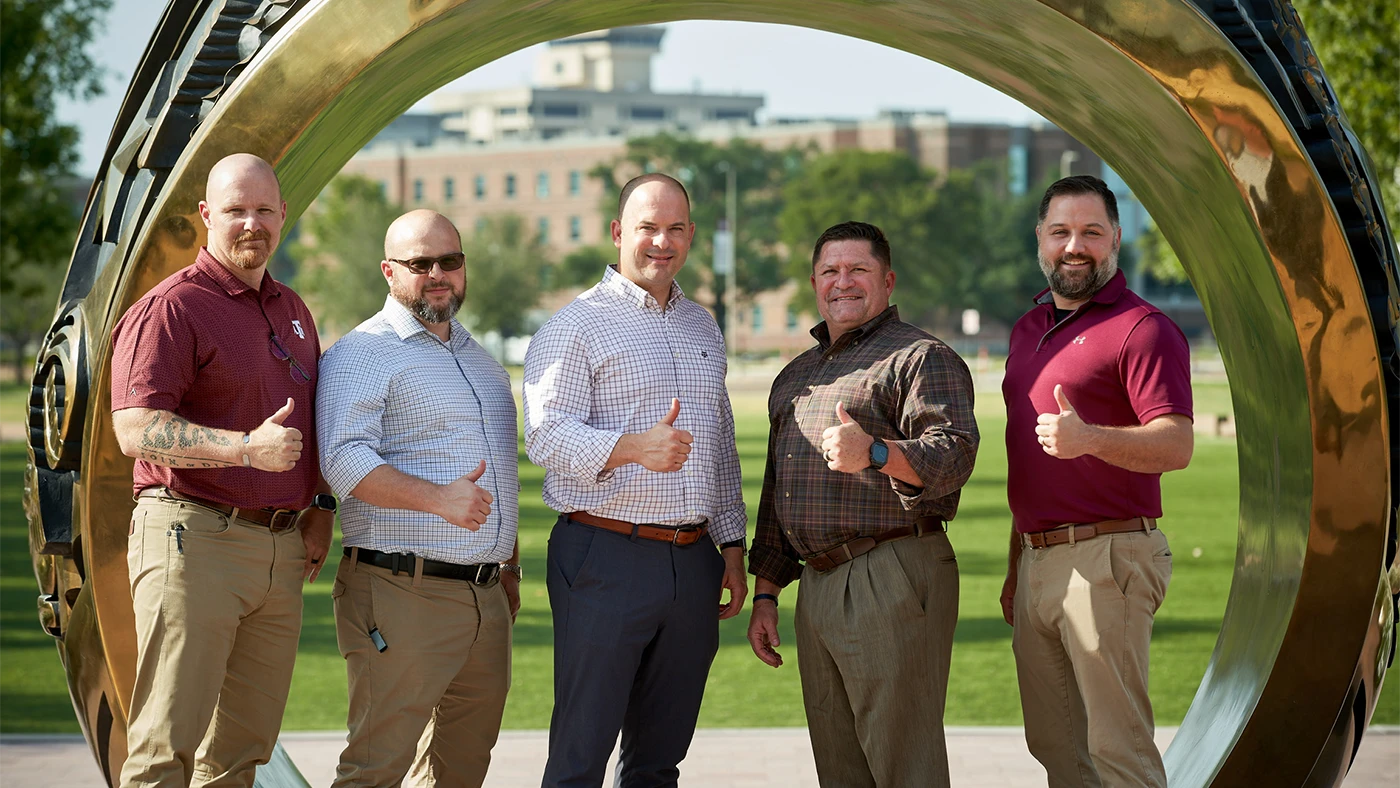
Williams completed the Executive MBA program at Mays Business School, officially becoming an Aggie graduate in May 2025.
Williams graduated with his MBA in 2025 and also retired from active duty. Today, he’s a partner at a venture capital firm focused on early-stage startups in defense, infrastructure and energy. He also serves alongside the other 60 living recipients in the Congressional Medal of Honor Society, ensuring that the values of the medal are shared across the nation to inspire the next generation of leaders — and Aggies. When he’s not working, traveling or speaking, he’s shuttling his sons to baseball and football practice and fitting in a few rounds of golf when he can.
And although his children are too young to be thinking of college, he said he would be thrilled if they decided to attend Texas A&M.
“I’d be very, very happy if they chose that path. I think it’s a great place for people to spend their younger years and grow up. I believe in values, and I think that the institution that’s based on values is something that can kind of stand on its own, and it doesn’t have to search for what it is.”

